By Muhammad Azfar Ahsan
In the realm of developmental change in the Kingdom of Saudi Arabia (KSA), a narrative unfolds, one that intertwines the dynamic shifts within the nation and the proactive endeavors originating from Pakistan.
Positioned as a vital bridge connecting these two nations, a significant role becomes known one that plays a pivotal part in not only catalyzing new opportunities but also fostering a collaborative atmosphere that transcends geographical boundaries. This narrative unfolds against the backdrop of shared aspirations, where the vision for progress goes beyond borders, laying the groundwork for a future defined by mutual growth and collaboration.
The genesis of this journey finds its roots in my capacity as the harbinger of change, introducing groundbreaking projects in Saudi Arabia to the receptive ears of the Pakistani audience. From the details of Vision 2030 to the visionary Neom project to the ambitious Red Sea endeavor, Amaala’s innovation to the strategic economic zones, I have not only been a keen observer but an ardent proponent of the need for a discourse on the unprecedented transformation unfolding in the Kingdom and the opportunities it presents for Pakistan. I believe that today Riyadh is the most happening place in the world as far as investments and economic development are concerned.
As Pakistan’s Minister for Investment, I seized the opportunity to engage with the Saudi leadership, orchestrating a total of 18 meetings focused on investment prospects. The objective was clear — to encourage KSA to consider substantial investments in the promising economic landscape of Pakistan. I have repeatedly highlighted that Pakistan can comfortably gain a few billion dollars’ worth of investment annually from KSA on a sustainable basis.
Integral to this journey has been my relationship with Saudi Arabia’s Investment Minister H.E. Khalid Al Falih. Beyond mere diplomatic formalities, our connection has transcended into a bond of brotherhood and friendship. This personal connection has fortified our collaborative efforts, transforming discussions into actionable plans.
In addition to the Prime Minister, cabinet colleagues, and other senior officials of the government, I undertook the task of briefing top military leadership, bureaucrats, and the business community, accentuating the vast potential within Pakistan, and championing the overhaul of key departments such as the Board of Investment, and the Privatization Commission, etc.
Saudi Arabia is on a transformative journey, driven by the ambitious Vision 2030 initiative. From massive infrastructure investments to pivotal economic reforms, the nation’s trajectory reflects a commitment to sustainable growth, innovation, and global prominence. I foresee that over the next two decades, the world will witness a complete metamorphosis of KSA in all facets — from infrastructural development to cultural evolution. They actually want to be a powerhouse in every sector of their economy.
A significant aspect of this transformative vision is Saudi Arabia’s successful bid to host the World Expo 2030 in Riyadh. Last year, I was briefed by a senior official working for the Expo 2030, and this was an eye-opener and testament to their capabilities and vision. They engaged the best global resources for planning and designing the overall roadmap for this global event. Since then, I have been confident that Saudi Arabia will be given the hosting rights for the Expo 2030 due to their preparations and the quality of work.
Emphasizing the importance of highlighting the nation’s advancements on a global stage, I expect that KSA will emerge, signs of which are more than evident, as a beacon of progress. The Expo 2030 initiative radiates positive effects on various sectors, notably construction and hospitality.
Recently, I was personally invited by the Governor of the Public Investment Fund (PIF) H. E. Yasir Othman Al-Rumayyan, Saudi Arabia’s Investment Minister, to their first-ever annual investment meetup in Asia – FII Priority in Hong Kong. This gathering emerged as a crucial platform, featuring the participation of global investors from 45 countries, with a notable 90% hailing from Asian nations.
This served as a pivotal opportunity to delve into the intricacies of investment inflows and outflows surrounding the Kingdom of Saudi Arabia (KSA). During my stay in Hong Kong, I had in-depth discussions with the Saudi leadership, during which they provided valuable insights into their investment plans and the factual status concerning Pakistan. These private interactions helped me understand the perception of Pakistan in KSA, and I believe that despite good intentions our direction is wrong.
The anticipated surge in PIF’s project CapEx, from USD 70 billion in 2023 to USD 175 billion annually between 2025-2028, signals a substantial boost to the non-oil GDP. Against this backdrop, top investors from diverse nations, particularly Asia, provided a comprehensive briefing to the Saudi leadership on investment opportunities.
The Saudi Arabian commitment to development is exemplified by its substantial Capital Expenditure (CapEx) plan, earmarking up to USD 0.9 trillion over the next decade. A focal point of this plan is the Expo 2030 initiative, where Riyadh takes center stage as the host city. The allocation of 1% of the overall CapEx to Expo 2030 underscores its significance in the broader scheme of large-scale projects.
The robust credit demand in Saudi Arabia is underscored by the pipeline of unawarded projects, estimated at USD 1.1 trillion. PIF’s substantial investment plans contribute significantly to credit demand, with local banks, especially corporate banks, positioned for growth.
Megaprojects like Al Ula, the Red Sea Project, NEOM, and The Line are instrumental in transforming Saudi Arabia’s landscape. These projects, with their focus on sustainability, luxury tourism, and technological advancements, contribute significantly to economic growth and job creation. Besides, the Saudi Investment Ministry started four Special Economic Zones (SEZs) in 2023 to facilitate investors from across the world for industrialization.
In the tumultuous landscape of Pakistan’s economic scenario, the recent withdrawal of major players like Shell and Telenor speaks volumes about the deficiencies in our short-term policies. This stark reality serves as an urgent wake-up call, signaling the dire need for a profound shift towards robust, long-term strategies that can resuscitate investors’ confidence and stimulate both domestic and foreign investments. Amidst these challenges, it is imperative to acknowledge the reality that Saudi Arabia, while serving as a beacon of hope in terms of successful models of transformation, is no longer ready to collaborate based on aid and subsidies.
Pakistan needs a “Charter for Business” for the next 20 years with sanctity as crucial as that of a constitution. This charter must have the stamp of the Parliament and the National Security Council. It needs to be above any political change or bias. This planning must be foolproof, including the will and vision of all stakeholders, covering ‘investment climate’ with future projections and margin for disruption. The objective of the entire policymaking needs to be facilitation for investors and enhancing the attractiveness of Pakistan as the best investment opportunity.
There is a need for an overhaul of the system and massive restructuring of institutions such as the Board of Investment (BOI), the Privatization Commission, and a few others. Pakistan’s BOI remains non-performing, not only because of the lack of permanent leadership but also due to an obsolete inherent infrastructure that has inbuilt delays for the recruitment of competent teams and quick decisions.
The ‘BOI Ordinance’ definitely requires amendments to enhance its productivity, enabling the recruitment of the best talent from across the landscape. In my opinion, the real and long-term solution is the robust restructuring and empowerment of the BOI, like our counterparts in the CARs, ASEAN, and ME. The BOI must become an agile, standardized, one-window operation for investors, as that will guarantee continuity, transparency, and accountability.
The only visible difference I see between the BOI and the Special Investment Facilitation Council (SIFC) is the official role of the military and the induction of senior military officials into the SIFC. Instead of positioning the BOI as a separate entity with a distinct council controlling its affairs, it would be better to have the military collaborate with the BOI. This collaboration can facilitate investments from the GCC countries, closing the loop with the completion of projects.
The same structure can also facilitate other countries. I look forward to the SIFC becoming a division of the BOI, covering the KSA, the GCC countries, China, and a host of other countries. This integrated approach could expedite investments for much-needed growth in Pakistan, providing sustainability to the SIFC. This is the only way to fix our investment landscape.
I recognize a potential interest from Saudi Arabia’s leadership in investing in Pakistan. To capitalize on this opportunity, it’s essential to present them with well-defined projects supported by comprehensive feasibility studies. In this context, I believe in the principle that investors must be encouraged and facilitated, and investment must be grasped at the ‘right time’. Investment is like water; it flows away if not productively engaged within the stipulated time.
It is incumbent upon us to proactively leverage this opportunity, presenting compelling projects across various sectors to secure a substantial share of investments. Failing to act promptly may result in a missed chance to harness this potential influx of capital.
The acknowledgment extended to the leadership of Saudi Arabia, and particularly Crown Prince Muhammad bin Salman Al Saud is not merely a formality but a recognition of a transformative vision that can serve as a guiding light for Pakistan’s metamorphosis. Together, through bold reforms, strategic partnerships, and a collective commitment to progress, the promise of a revitalized and economically independent Pakistan awaits, where the echoes of collaboration resonate for the generations to come.
The writer is a former minister of state and chairman Board of Investment. X (formerly Twitter): @MAzfarAhsan
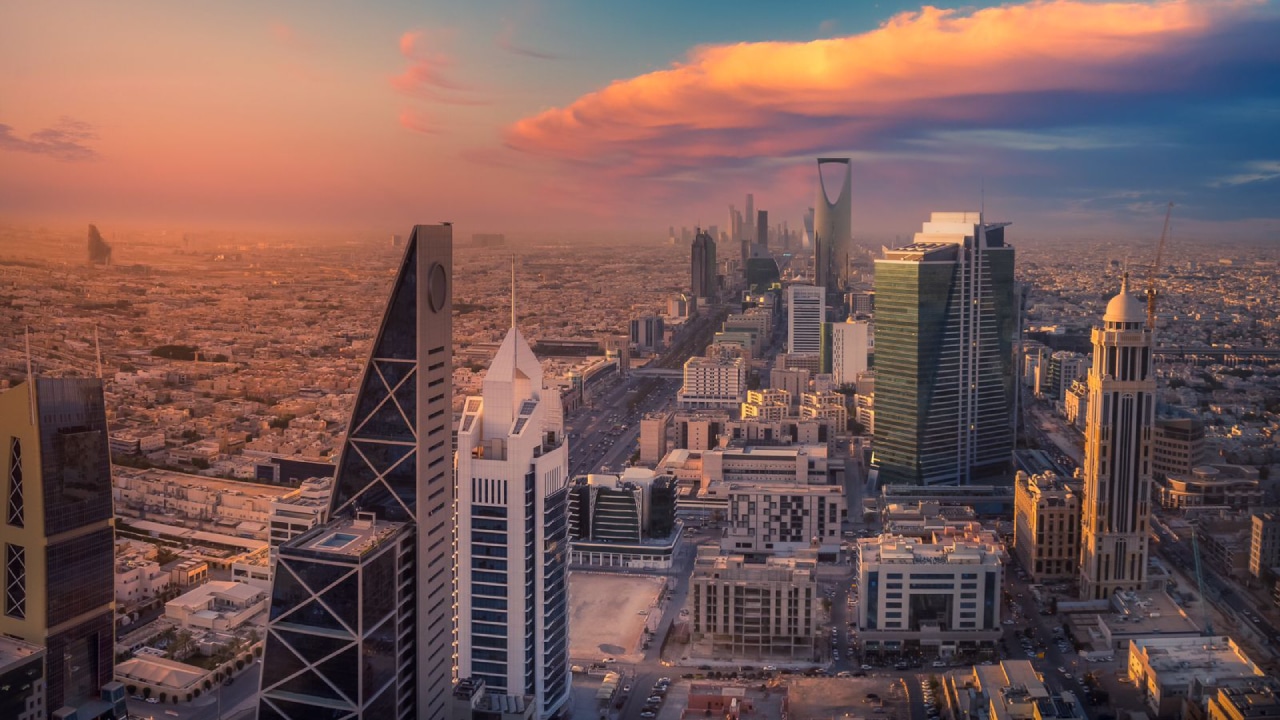

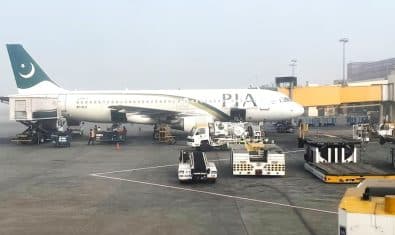
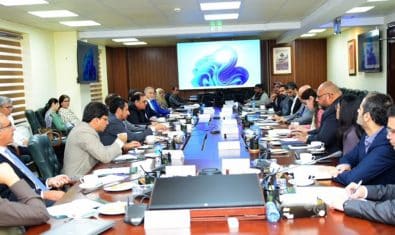
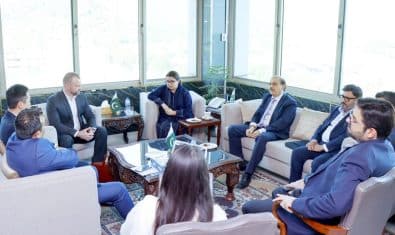

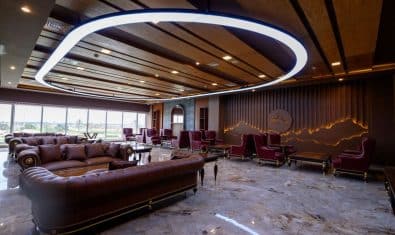















Try to use simple language in future so everybody can understand what you have to say. I lost my focus and got bored by this.
It’s ChatGPT generated! I checked using ZeroGPT :)
ZeroGPT is not reliable, just tested a GPT 4.0 generated article with it and says its 6.5% AI written.
Why you have used unwanted & too complex vacabulary? Try to use simple word’s just like other international English stories. I want to read this story but after few lines I lost focus and get bored.
Very poorly written